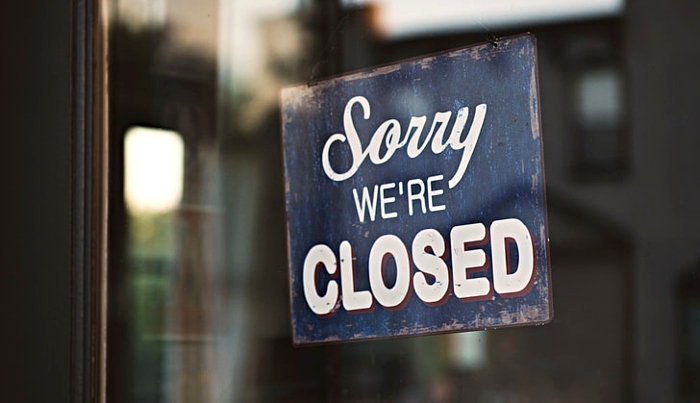
The number of voluntary business liquidations in Cheshire East nearly doubled in 2022 compared to 2019 before the pandemic, latest figures have revealed.
There were 143 creditors’ voluntary liquidations in Cheshire East in 2022 – an 83% rise on the 78 registered in 2019.
And over the last four years, there have been 354 such liquidations in Cheshire East borough area – almost double the 184 in Cheshire West and Chester over the same period.
The figures for all local authority areas across England, Scotland and Wales were gathered by the BBC’s shared data unit.
The pandemic coupled with the cost of living crisis and crippling energy bills is behind the sharp rise in businesses closing down.
The BBC research focused on creditors’ voluntary liquidations – the most common way for firms to be shut down when no longer viable. It analysed the national public record for insolvency notices in The Gazette.
These occur when company owners have voluntarily placed the business into liquidation rather than waiting for it to be wound up by a creditor.
Regionally, the North West has one of the highest rises in liquidations with 74% more going to the wall in 2022 compared to 2019.
Retail and construction industries have been hit the hardest according to the data.
Nationally, 187 out of 221 upper tier authorities in the UK (85%) saw a rise in liquidations comparing 2019 to 2022.
Insolvency expert Julie Palmer, from Begbies Traynor, said: “There’s a lot of nervousness in the economy at the moment due to macro-economic pressures.
“With interest rates, they are still not high in relative terms, but high in terms of how this generation perceives them, together with inflation that until recently seemed to be galloping out of control.
“This has caused a real cost of living crisis, which is really hitting consumer confidence.
“People are tightening their belts and it’s particularly those consumer-facing sectors, that we’re really beginning to see struggle at the moment.
“We are seeing rising levels of distress that’s beginning to translate in terms of a pickup in insolvency rates, we haven’t seen that massive falling off the cliff edge yet, but I think some factors will speed up that process a little bit.
“The courts are progressively beginning to push through some of the credit applications to take recovery action and HMRC (His Majesty’s Revenue and Customs) is definitely getting a lot more aggressive in terms of chasing statutory debts.
“So we only see insolvency figures going one way. I think it will be a steady rise rather than a fall off a cliff edge.”
Michael Weedon, of Federation of Small Businesses, added: “We knew during the first year of pandemic there was deliberate business support from the government – we knew when that tailed away, particularly in terms of finance, there was a risk we’d see companies disappearing, because if the support went away, they wouldn’t be able to to persist depending on their state of confidence.
“One of the interesting things about FSB research is, when we look at confidence surveys, which are done quarterly, more business confidence fell throughout most of 2021 and 2022, and within that retail fell more sharply than the overall level of confidence – exactly as insolvencies were rising.”
“We’ve seen large rises in insolvencies, particularly in places where there are more independent businesses.
“Large cities tend to be the home of bigger businesses – so the outskirts of big cities and smaller places, where there are more independents, are seeing the effect of these liquidations.”
A government spokesperson said: “The Business Minister recently wrote to the CEO of Ofgem to raise this issue and ask them to ensure energy suppliers show forbearance to businesses that are struggling to pay energy contracts, and government support does not go to waste.
“We have already provided around £400 billion of direct support to businesses, including business grants, coronavirus loan schemes, the Coronavirus Job Retention Scheme, plus income tax payment deferral.
“This is alongside a new arbitration scheme to help resolve pandemic related rent debt.”
(Image licence free by PickPik)


















Recent Comments